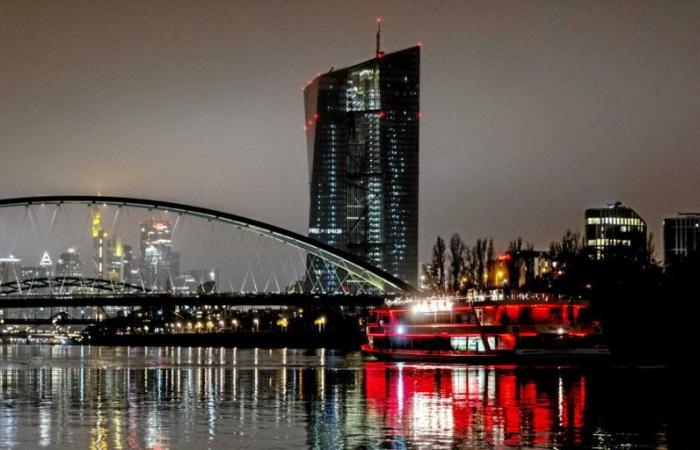
En this mid-December 2024, Frankfurt is dressed in its festive clothes. The traditional chalets of the Christmas market stand out against the gray background of the buildings, amid the smells of sausages and gingerbread. Even the buildings of the austere European Central Bank (ECB) took on a festive air. Visitors suddenly find themselves face to face with choristers dressed in sweaters adorned with reindeer, fir trees and other Nativity symbols. It is difficult to imagine that a central event for the institution responsible for maintaining price stability in the euro zone has just occurred…
Indeed, the ECB has just completely ended its bond purchases on the markets. To take stock of this change of era, because that is what it is, we have to go back ten years. We are in 2015 and the eurozone is on the verge of deflation after having been devastated by the subprime and sovereign debt crises.
Side effect
To counter this risk of a harmful spiral, Mario Draghi's ECB then embarked on what is called quantitative easing (EQ). This “quantitative easing”, in the language of Molière, is a conventional monetary policy tool which was already tested at the time in Japan, the United States and the United Kingdom. When the traditional tool to combat deflation – lowering key rates – is no longer enough, this solution, which consists of purchasing assets, in particular public debt securities, makes it possible to lower financing costs. borrowers and support the economy.
To Discover
Kangaroo of the day
Answer
After the APP (Asset Purchase Program) in 2015, Christine Lagarde's European Central Bank launched a second asset purchase program at the time of the Covid pandemic in 2020, the PEPP (Pandemic Emergency Purchase Program). The ECB's support for the economy is working. This system reassures private investors: in the event of a problem, they know that they will always be able to resell their securities to this buyer of last resort. But it causes a side effect. Over the years and its asset purchases, the Frankfurt institution has established itself as the leading creditor of the Eurozone states. A quarter of the French debt is thus held by the Banque de France.
We will now have to go back and change the paradigm again. The “quantitative tightening” was certainly very gradual. The ECB began by stopping its net purchases in 2022, contenting itself for several months with reinvesting the amounts reimbursed to it. It is these reinvestments which ceased at the end of 2024. The whole question now is how private investors will react and what the impact will be on the financing conditions of euro zone States. For France, which announced that it would issue a record amount of debt of 300 billion euros this year in the midst of political instability, this is an additional thorn in the side.
France





